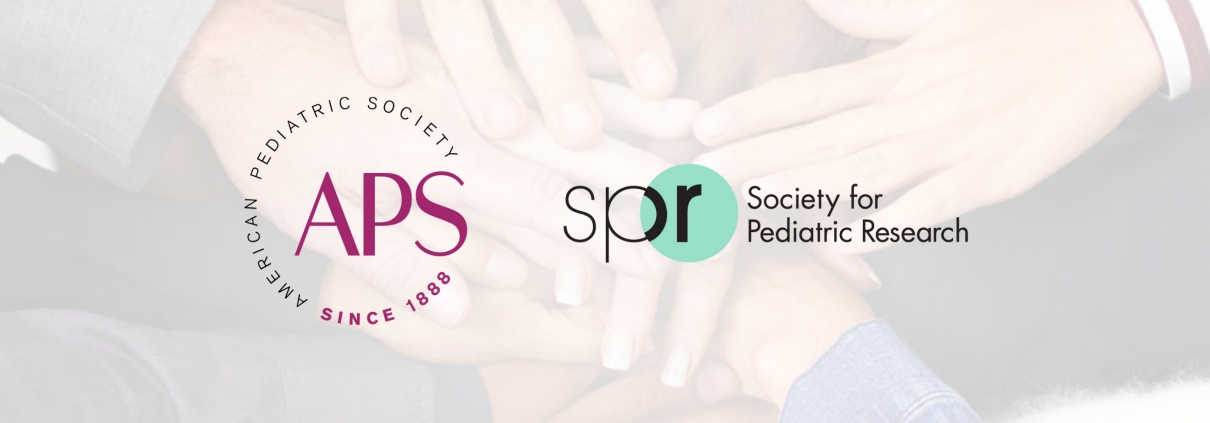Pediatric Policy Council Update
The APS and SPR are members of the Pediatric Policy Council (PPC) which actively advocates for children and academic pediatrics at the federal level. APS representatives to the PPC are Drs. DeWayne Pursley and Jonathan M. Davis; Drs. Joyce Javier and Shetal Shah represent the SPR.
The PPC also includes representatives from the Academic Pediatric Association (APA) and the Association of Medical School Pediatric Department Chairs (AMSPDC). The PPC is based in the Washington DC office of the American Academy of Pediatrics (AAP), who supplies staff and other support.
The latest advocacy developments are summarized by the PPC below
PPC CAPITOL CONNECTION
August 30, 2021
What Matters Now in Washington:
- President Biden’s domestic agenda is moving ahead in Congress after critical votes in the House and Senate. More…
- The Pediatric Policy Council endorsed a bill to expand pediatric research training opportunities at the National Institutes of Health (NIH). More…
- Eunice Kennedy Shriver National Institute of Child Health and Human Development (NICHD) Director Diana Bianchi, MD, discussed the institute’s efforts to facilitate the safe return to school for children in a recent blog post. More…
- PPC members authored policy commentaries in Pediatric Research exploring the intersections of child health policy, advocacy, and pediatric research. More…
Biden Scores Major Wins on Domestic Agenda but Headwinds Emerge At a Critical Moment. President Joe Biden’s ambitious domestic agenda is on track after victories in the U.S. House and Senate this month, but there may still be trouble ahead. It will now be up to Democratic leaders in Congress to navigate challenging dynamics between the party’s moderate and progressive wings, and the outcome of their efforts will ultimately determine Biden’s ability to make good on his campaign promise to invest in America’s physical and human infrastructure.
Positive news first emerged in early August. After months of wrangling, President Biden and Senate moderates scored a major victory when the Senate passed a carefully negotiated bipartisan infrastructure bill. The $1 trillion package includes billions of dollars for roads, bridges, transit, airports, and other infrastructure priorities. Of note, the bill provides $55 billion for upgrades to the nation’s drinking water infrastructure to remove lead pipes, an important child health priority. It also includes $7.5 billion for electric vehicle charging infrastructure and $5 billion to electrify school buses, provisions both aimed at reducing carbon emissions. $65 billion would go toward expanding the availability and affordability of broadband internet, an important investment given the abrupt transition to telehealth services and online learning during the pandemic. Roughly half of the spending in the bill is new money as compared to current spending levels, while the remainder is comprised of repurposed money from other programs. In a show of its bipartisan appeal, the bill ultimately passed by a vote of 69 to 30.
That victory was followed quickly by the passage of a $3.5 trillion budget resolution on a party line vote that same week, further bolstering the Biden administration’s legislative prospects. The budget resolution sets out top-level government spending and revenue targets for the fiscal year, and it unlocks the powerful budget reconciliation process that will allow Democrats to pass the remainder of President Biden’s domestic spending priorities with a simple majority vote in the Senate. While the specific provisions of any final legislation developed through this process remain to be seen, the resolution envisions several trillion dollars in spending to enhance the social safety net and reinvest in Americans. It is widely expected that a budget reconciliation bill will include provisions on paid family and medical leave, affordable child care, universal pre-K, tuition-free community college, an extension of the enhanced Child Tax Credit, and major carbon emission reduction programs. Such legislation may also include provisions to close the Medicaid coverage gap, extend enhanced premium subsidies for health coverage, and expand Medicare benefits.
On Tuesday, the House of Representatives successfully passed the Senate’s budget resolution after Speaker Nancy Pelosi quelled a rebellion by moderate members of the Democratic caucus queasy at the notion of spending such vast sums. In exchange for their votes on the budget resolution, Speaker Pelosi promised a vote on the Senate’s bipartisan infrastructure bill—which moderates are eager to tout back home as proof of their centrist credentials—by September 27. Speaker Pelosi has insisted on holding back the bipartisan infrastructure bill for now as leverage to push for the most robust human infrastructure reconciliation bill in negotiations with the Senate. The adoption of the budget resolution will allow both chambers to begin preparing their own reconciliation bills.
Despite the good news, road blocks remain. Democrats retain narrow margins in the House and Senate, which will challenge leadership to strike a deal that satisfies the caucus’s ideologically diverse membership with few votes to spare. Other issues threaten to derail the process as well. The ongoing crisis in Afghanistan has diverted attention from these recent legislative achievements. Congress is also contending with looming deadlines to fund the federal government and raise the debt limit—which may be reached in a matter of weeks. Outside advocates are also vying for congressional action on other time sensitive matters like voting rights legislation. In short, while Biden’s agenda remains on track for now, it faces a tough road ahead.
PPC Endorses Legislation to Expand Pediatric Research Training Opportunities at NIH. The PPC and the AAP recently endorsed the Pediatricians Accelerate Childhood Therapies (PACT) Act (H.R. 3773). The bipartisan legislation introduced by Reps. Kim Schrier (D-Wash.) and John Joyce (R-Pa.) aims to strengthen the pediatric research workforce by expanding training opportunities at the National Institutes of Health (NIH) to address a key gap in the research pipeline.
Experience among academic pediatricians indicates that the transition from training awards to independent NIH research funding is critical to establishing a long-term career in research. However, funding for NIH grants is highly competitive, which has remained the case despite historic increases in funding for the NIH over the last several years. Furthermore, financial and professional pressures can discourage pediatricians with research training from pursuing NIH research funding at this stage in their careers.
The PACT Act seeks to address this transition by establishing a new trans-NIH funding mechanism for pediatric research training targeted at early-career researchers. The new pediatric research training award envisioned under the legislation would allow grantees to use funding obtained through this award for both research and other activities that help a pediatrician scientist attain independent NIH research funding. For instance, money distributed through this new mechanism could be used for professional development activities like conference attendance and facilitating mentorship by more senior colleagues. Of note, the legislation also formalizes under law the Trans-NIH Pediatric Research Consortium (N-PeRC) that has been established at NIH to coordinate pediatric research activities across institutes and centers, which will help to direct the awards made under this new authority.
The PPC will continue to work closely with pediatric research champions on Capitol Hill to advance this legislation and strengthen the pediatric research workforce.
NICHD Funds Research on COVID-19 Testing in Schools. In a recent blog post, NICHD Director Diana Bianchi, MD, discussed NICHD’s role building the evidence base to inform policy decisions to bring children back to the classroom safely. An ongoing initiative, known as the Safe Return to School Diagnostic Testing Initiative, launched earlier this year as part of the NIH Rapid Acceleration of Diagnostics-Underserved Populations (RADx-UP) program. Studies funded through the program are investigating the role of frequent COVID-19 testing and other public health measures to reduce the spread of the novel coronavirus in a variety of educational settings nationwide. This includes inquiries into the role of staff and eligible student vaccination, vaccine hesitancy, and SARS-CoV-2 variants on the safe return to school. The blog post is available here.
PPC POLICY COMMENTARIES. Members of the PPC have authored commentaries detailing the policy implications of research published in Pediatric Research. You can read these PPC-authored commentaries online:
- Infant mortality, poverty and reproductive justice by Lois Lee, MD, MPH, Catherine Coughlin, and Rebekah Mannix, MD, MPH
What We’re Reading
- How to get children the medical care they need now and in the future by Shetal Shah, MD, and Tina Cheng, MD, MPH
- Critical shortage of specialty pediatricians highlights need for federal action by Anisha Bhatia Attawala, MD, Jason Jackson, MD, and Emily Miller, MD

